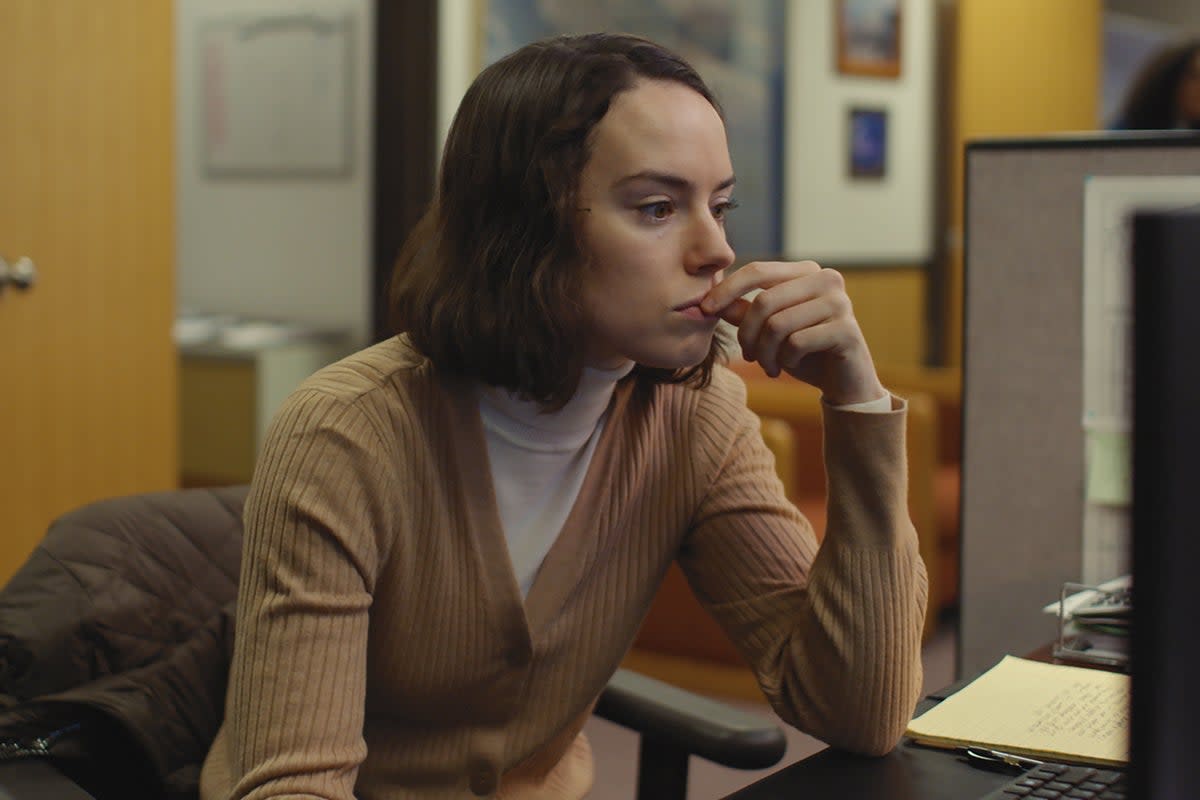With Sometimes I Think About Dying, has Daisy Ridley beaten the Star Wars curse?

It ain’t easy being a Jedi. On the face of it, it seems like a pretty cushy gig – replete with perks such as adoring fans, flowing robes, and a big glowing stick you get to waggle at things. But the reality of becoming a Jedi is markedly less liberating. Just ask Mark Hamill. Or Hayden Christensen. Or Daisy Ridley.
Since the days of the original Star Wars trilogy (1977 to 1983), the iconic sci-fi franchise has all too often proved to be a kiss of death for its stars’ careers. (Or should that be some kind of Force choke?) After Return of the Jedi, it wasn’t just Hamill whose employment landscape started to look rather Tatooine-y: Carrie Fisher, pigeonholed permanently into the bun-haired outline of Princess Leia, was similarly let down by an industry that owed her more. Christensen is the quintessential victim of the “Star Wars curse” – a promising young actor who flapped out of the Star Wars nest in 2005 and hit the ground like a hailstone. For the past several years, it has seemed as though Ridley – aka the sequel trilogy’s unflappable protagonist Rey – has been destined to languish in cinematic mediocrity. Her most notable non-Star Wars projects to date have been the insipid whodunnit Murder on the Orient Express and the dreary Tom Holland sci-fi Chaos Walking. But this week, finally, things are looking up.
Sometimes I Think About Dying, released in cinemas last Friday, sees Ridley play Fran, a lonely small-town introvert who works with spreadsheets and fantasises daily about her own cadaver. The film begins with the departure of one of Fran’s office co-workers; stepping into the position is Robert (comedian Dave Merheje), an affable out-of-towner who manages to coax Fran out of her shell. It’s an utterly transformative role for Ridley, who maintains an iron grip on our sympathies despite being outwardly off-putting. Hers is a vulnerability that is sensed but rarely betrayed outwardly.
There is little in the Star Wars sequel trilogy that would suggest Ridley is capable of pulling off such a subtle and deeply affecting performance. Ridley barely has any dialogue. It is full-body acting, a performance that constantly leaves you guessing. (Some people have read her character as autistic or otherwise neurodivergent, but this is left to interpretation.) Social anxiety is a hard thing to portray on screen without lapsing into mockery or cheap cliche; Ridley attacks it with humanity and specificity.
One of the standout sequences sees Fran and Robert attend a get-together at a neighbour’s house, where the guests play a murder mystery parlour game. Hiding in the bath, Fran is tapped on the head and must “die”. She lets out a croaked sigh and sinks down. Minutes later, she explains to the gathered partygoers how she was “killed”, going into too-graphic detail about the bizarre, acid-based murder method. It’s dryly funny stuff. A minute or two later, and Fran’s in the car with Robert, having a discussion that careens into a nasty argument. Sometimes I Think About Dying balances itself on a tonal knife-edge, tilting between humour and pathos, between hope and despair.
Whether Ridley will build on her work in this film remains to be seen. She is still just 32. The bulk of her career is ahead of her. When it was announced last April that she’ll be returning to Star Wars for a forthcoming sequel, the general response was a mixed one. The constantly metastasising sci-fi franchise is becoming something of a black hole; from Billy Dee Williams to Ewan McGregor, actors seem increasingly powerless to resist the pull. And yet Sometimes I Think About Dying suggests there is life for Ridley outside George Lucas’s galaxy. It might be too soon to declare the curse lifted – but I think I just saw it budge.
‘Sometimes I Think About Dying’ is in cinemas


